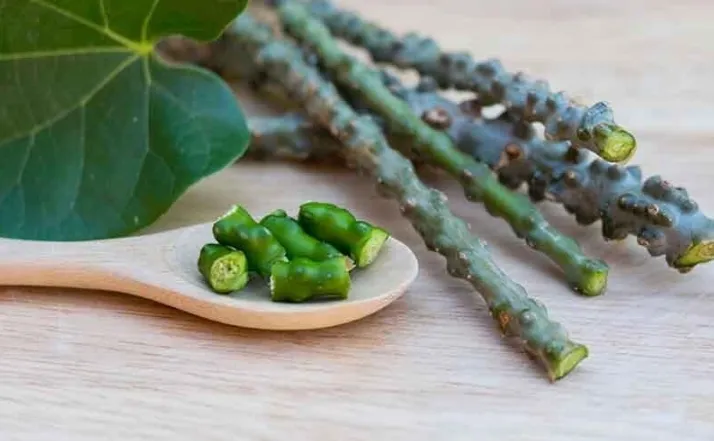Surge in Global Research on Giloy Exceeds 375% Over Past Decade: Ayush Ministry

Synopsis
Key Takeaways
- Global research on giloy has increased by 376.5% in a decade.
- Studies rose from 243 in 2014 to 913 in 2024.
- Giloy is known as the 'herb of immortality' in Sanskrit.
- The plant shows promise for immune modulation and antiviral effects.
- Research is focused on its potential in cancer and autoimmune disease therapies.
New Delhi, Feb 28 (NationPress) Global research indicating the beneficial role of giloy in enhancing immunity has surged by 376.5 percent over the last ten years, as reported by the Ministry of Ayush on Friday.
The rise in research publications concerning Giloy (Tinospora cordifolia), according to data from PubMed, a well-known database for biomedical and life sciences studies, showcases a burgeoning global interest in the plant’s therapeutic potential.
From 243 studies published in 2014, the number of research papers focusing on ‘guduchi or tinospora cordifolia or amrita’ increased to 913 in 2024, the Ministry reported.
Tinospora cordifolia, often referred to as Guduchi or Giloy, is known as Amrita in Sanskrit, which translates to ‘the herb of immortality’, due to its numerous beneficial properties.
This plant has been utilized in therapeutics for an extended period in Ayush systems.
While researchers have been fascinated by Giloy’s medicinal qualities for years, the period following the Covid-19 pandemic saw a significant increase in research as specialists investigated natural immunity enhancers and holistic health solutions.
Emerging studies affirm its immune-modulatory, antiviral, and adaptogenic properties, making it an area of intense interest among global researchers and healthcare professionals.
“The scientific validation of Ayush formulations, herbs, and medicinal plants like Giloy is a key priority for the Ministry. We are dedicated to enhancing research collaborations, funding scientific investigations, and advocating for evidence-based integration of Ayurveda with mainstream healthcare to improve global health,” stated Vaidya Rajesh Kotecha, Secretary of the Ministry of Ayush.
“The increasing number of clinical studies and laboratory research implies that Giloy might play a crucial role in cancer therapy, management of autoimmune diseases, and even inflammatory disorders,” added Professor Rabinarayan Acharya, Director General of CCRAS.
Dr. Galib, Associate Professor at the All-India Institute of Ayurveda, New Delhi, remarked: “The scientific exploration of Giloy is accelerating, with a growing number of studies highlighting its medicinal potential.”
Recent research also emphasizes its bioactive compounds and therapeutic benefits, including immune-boosting and anti-inflammatory properties.
“This increasing interest positions Giloy as a promising candidate for future clinical applications across various medical fields,” concluded the expert.








